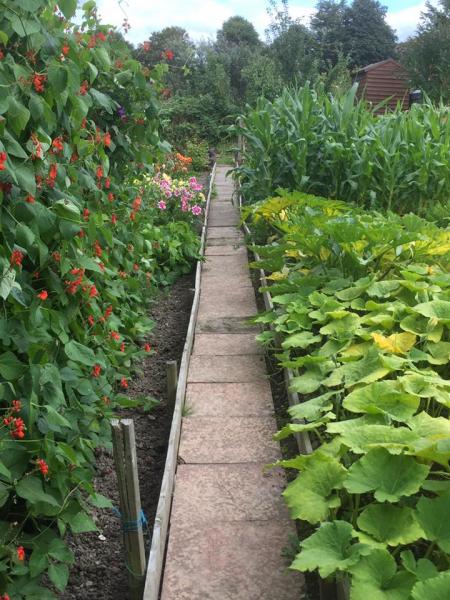

September is a favourite month for many allotment holders. It is the month for reaping the rewards of your labours with so many crops ready to harvest. Night time temperatures will begin to fall with clear nights and Jack Frost may be something to watch out for. September can also bring lovely warm, sunny days to a relief from the all the wet summers we now seem to be having.
What to sow
Now is the best time to start sowing the vegetables that can provide you with winter harvest and early pickings in spring and summer.
You can sow spring cabbages and spinach, winter salads, broad beans and peas for earlier harvests next spring, onions, shallots and garlic, and quick-growing crops such as turnips and radish. Good salad crops to try are oriental leaves, perpetual spinach, winter lettuces, radishes, rocket, winter hardy spring onions, corn salad, mizuna (these crops will probably need some form of protection over winter)
Sow a green manure
September is also a good time to sow a green manure, such as grazing rye, over any patch of soil that is going be left bare over winter – it supresses weeds and will add nutrients when dug into the soil in spring. Find more information on green manures HERE
Harvesting
There is so much to harvest in September, including courgettes, aubergines, swiss chard, cabbages, cauliflowers, onions, potatoes, runner beans, french beans, chillies, peppers, tomatoes, beetroot, carrots, cucumbers, radish, spring onions and autumn-fruiting raspberries and apples.
Now is the time to check if your sweetcorn is ready to harvest. If the tassels have turned black or brown, peel back the outer leaves and push your nail into the sweetcorn. If the juice is milky then it is ready to eat, if the juice is clear then leave a bit longer.
Jobs to do
Plant out spring cabbages, over wintering onion sets and strawberries.
Wasps can be a real pain at this time of year. To minimise damage, pick fruits as soon as they are ripe, and pick up any fallen ones. Try to keep birds of crops such as apples and pears, which can be pecked at by birds which in turn attracts wasps.
Order new fruit trees, canes and bushes.
Cut down the foliage of asparagus when it turns brown. Take care of the spines, and give the plants a good mulch afterwards.
You still need to keep on top of the watering at this time of year as irregular watering can lead to problems with blossom end rot in tomatoes and splitting of root vegetables. Water well during dry spells. Keep watering winter squash and pumpkins as this will prevent their growth from being checked.
Celery can be earthed-up for the final time this month, leaving just a tuft of foliage sticking out of the trench or collar in order to blanch the stems.